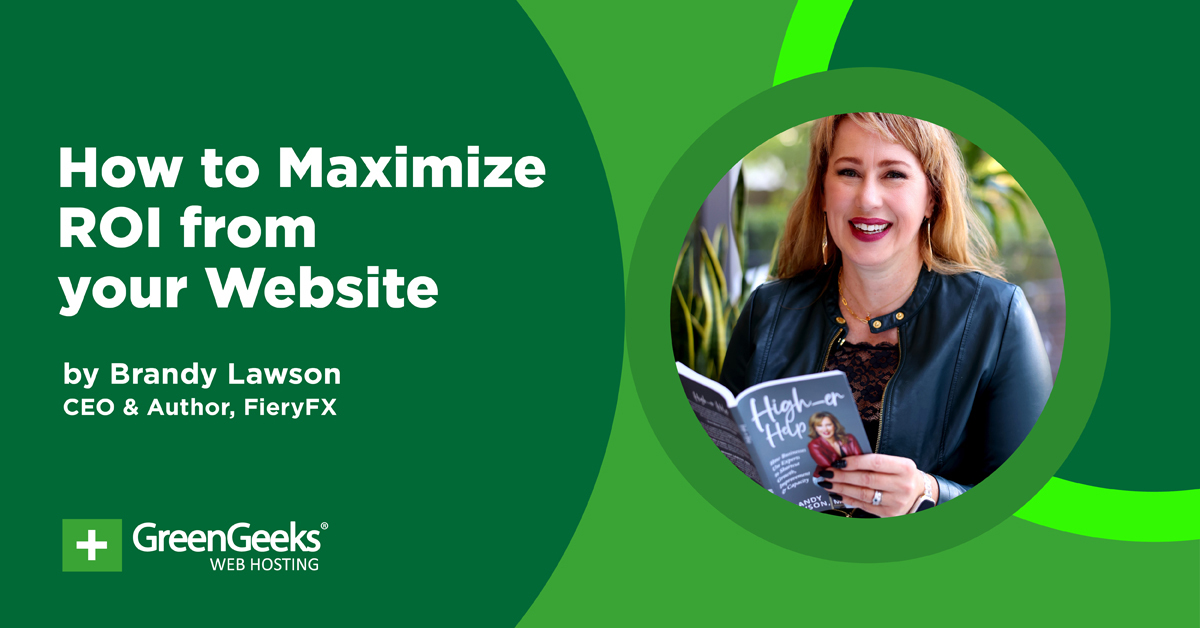How to Maximize ROI for Your Website Webinar

Is your website truly working for you, or is it just another expense? In today’s competitive digital landscape, your website should be a money-making asset. So it’s very important to be mindful of your website’s ROI.
Our webinar’s guest speaker, Brandy Lawson, is a website and digital marketing expert. She will share practical tips on how to get the most return from your website.
This webinar offers a clear guide to help you plan, implement, evaluate, and improve your website strategy. By the end of her talk, you’ll get a full grasp on how to maximize your website ROI for your business’s success.
Your Website Is An Asset
Brandy stressed that your website should be seen as a valuable part of your business, not just a cost. Think of your website as an asset.
But before investing in a website, it’s important to be clear about what you want it to do. Is your goal to generate leads, improve customer experience, or something else?
If you don’t clearly define your website’s purpose, it will be hard to know how to invest in it or measure its value.
On the other hand, when you clearly understand the results you’re after, you can more easily determine the functionalities and features that are needed on your website.
Maximizing Your Website ROI
In the webinar, Brandy highlighted that a beautiful website isn’t always a successful one. What matters most is how well it works for your customers. It’s not about how you see your website, but how your customers experience it.
When designing your website, start with the basics and gradually improve it along the way. Focus on features that enhance user experiences, like clear calls to action, mobile-friendliness, and intuitive layout.
Think about what your visitors need and how to make their journey on your site as simple as possible.
Specify The Role Of Your Website
Just like an employee, Brandy also mentioned that you should give your website a job description. Websites can wear a lot of hats and they can take on a lot of more roles over time. But you’re not likely to be very successful if you’re trying to give your website six different jobs immediately.
Its role can be sales (through lead generation), marketing, customer service, or a combination of roles. But the most important thing is that you need to be specific on the role you’d like your website to take.
Once you know what job (or jobs) your website can do, then you can create a detailed plan on how your website will execute the job.
It’s also important to build your website in stages. Always remember that you can’t do everything at once. Building a website is an ongoing process. Start simple, get it working, and then make improvements as you go.
Measure and Track Your Website Success
Brandy also mentioned the importance of regularly checking your website’s metrics such as traffic, bounce rates, conversion rates, and others. These data will help you understand how well your site is performing and where improvements are needed.
Additionally, tracking metrics over time helps identify trends, monitor the impact of updates, and adjust your marketing efforts. Without tracking, you’re left guessing, which can lead to wasted resources and missed opportunities.
In short, tracking metrics ensures your website is a proactive, data-driven tool that evolves with your business needs and audience preferences.
Your Website ROI Matters
Maximizing your website’s ROI requires careful planning, setting clear business goals, and regularly tracking performance. Your website is not a one-time project but an evolving asset that needs ongoing investment and strategic adjustments to deliver real business results.
By focusing on functionality, defining clear outcomes, and continuously optimizing, you can turn your website into a powerful tool for growth.


